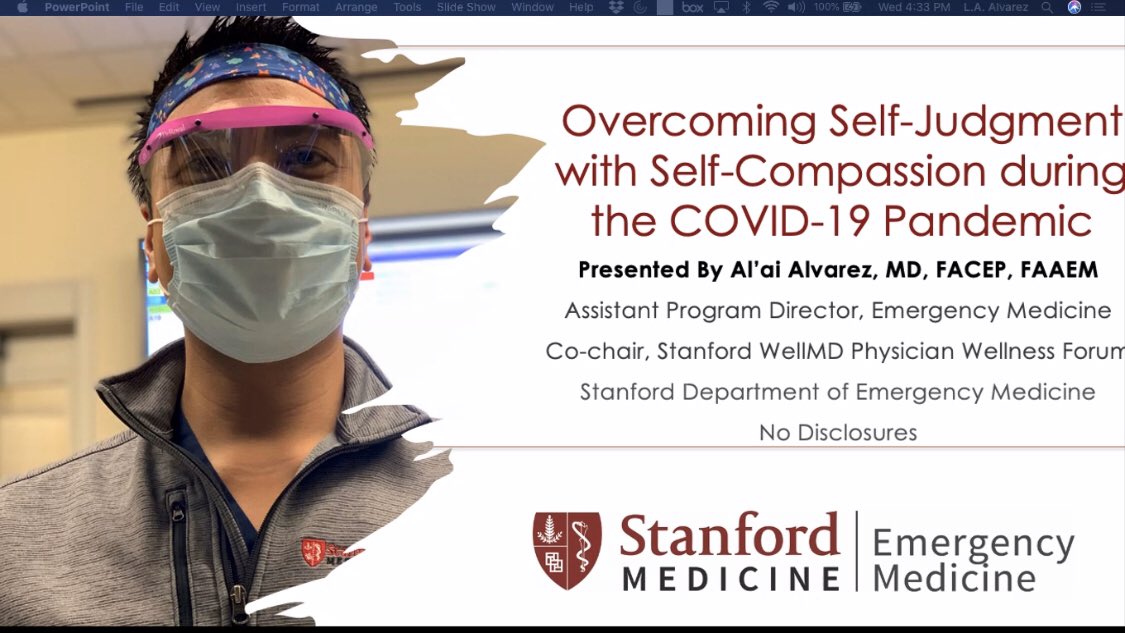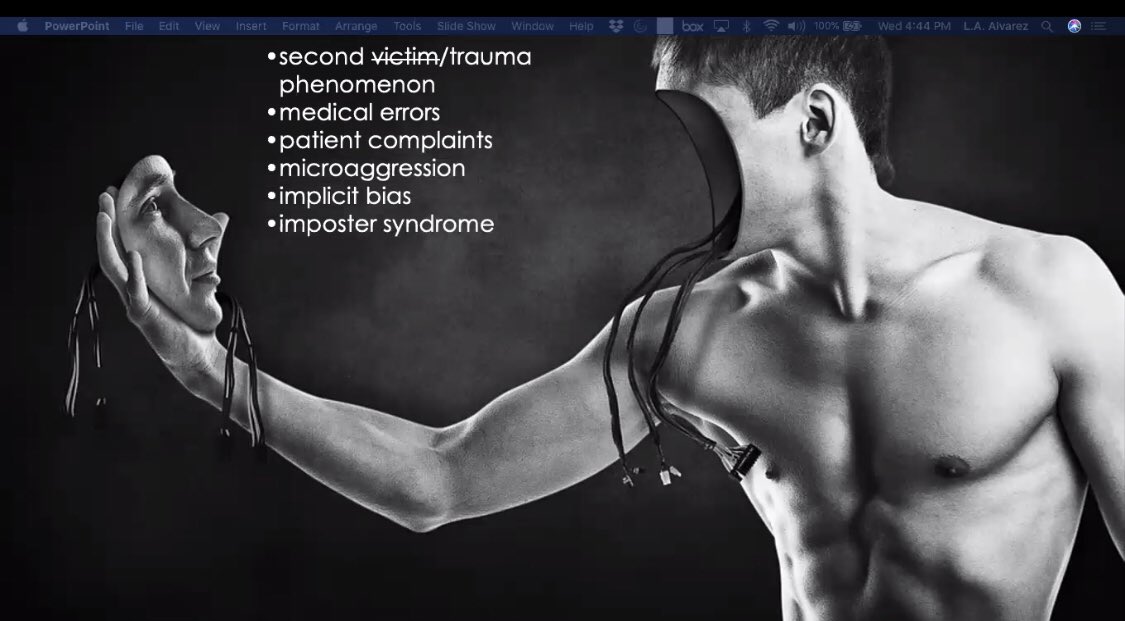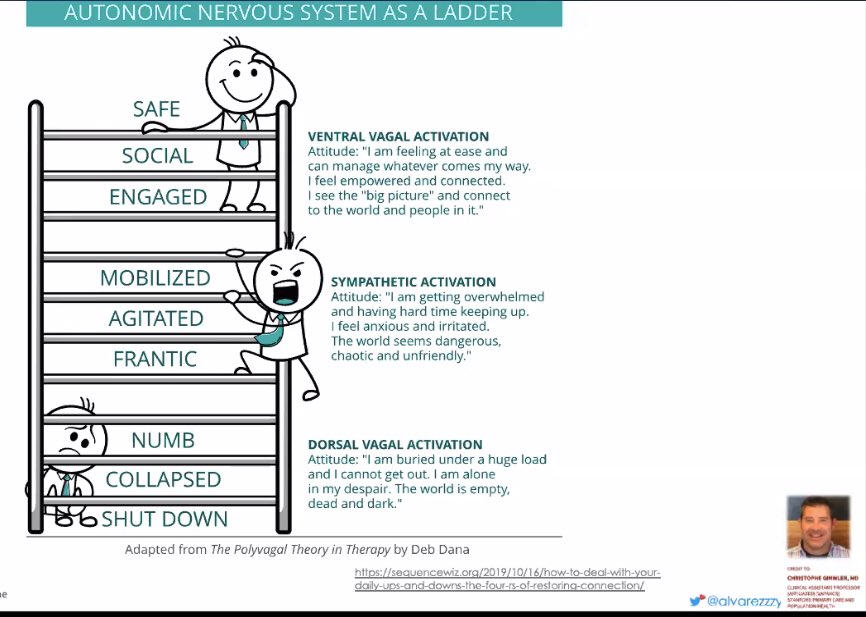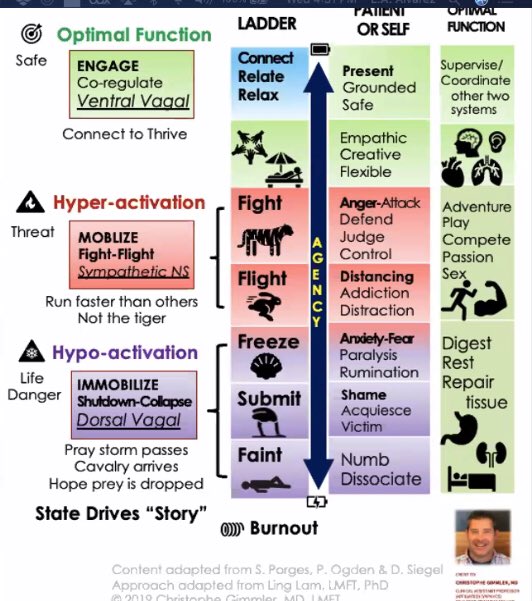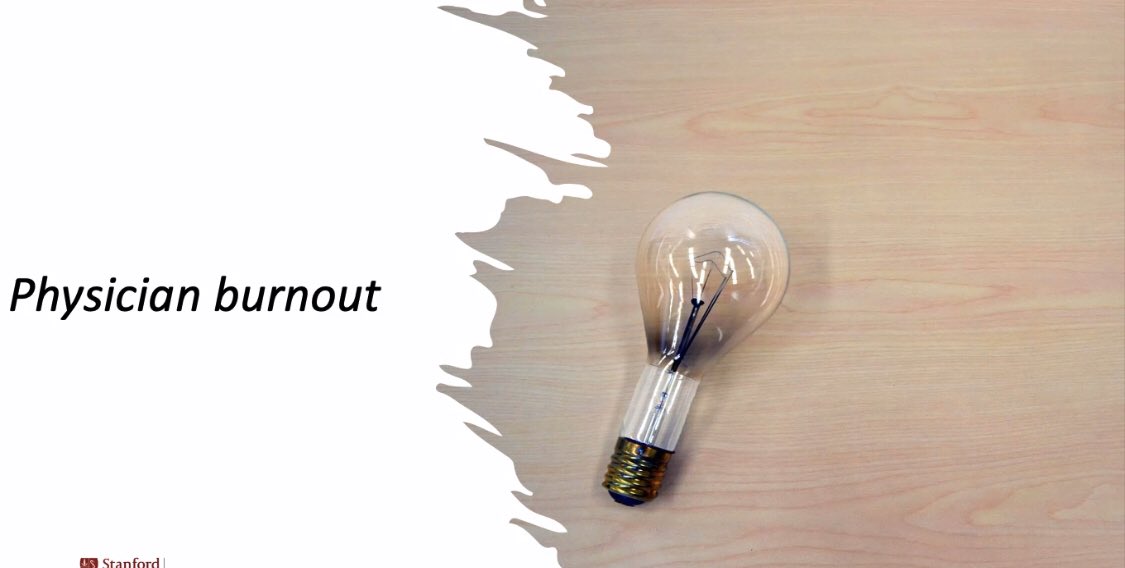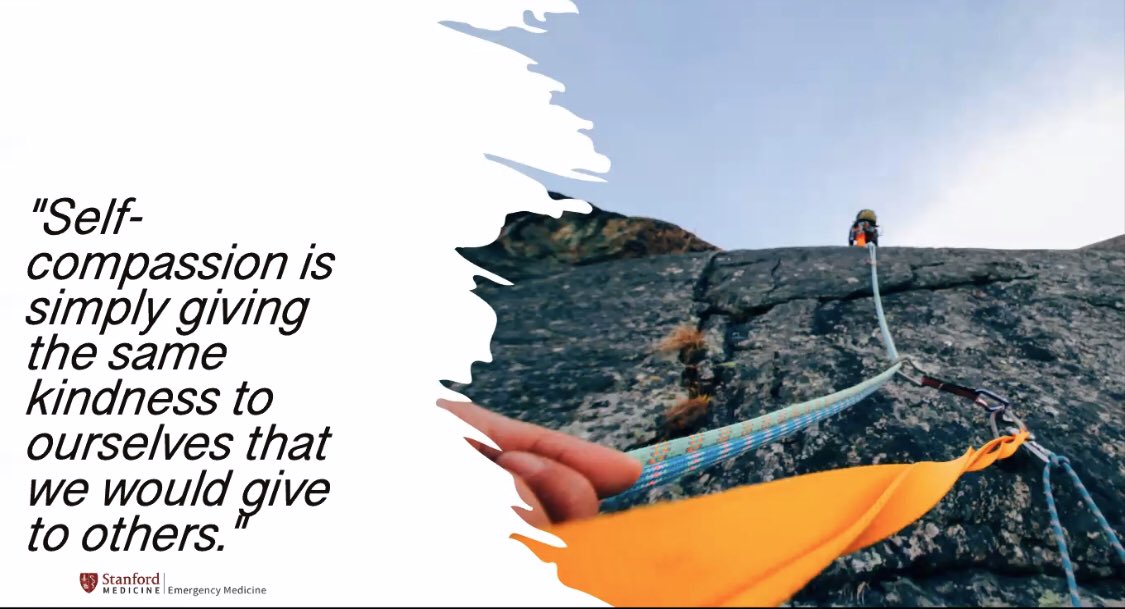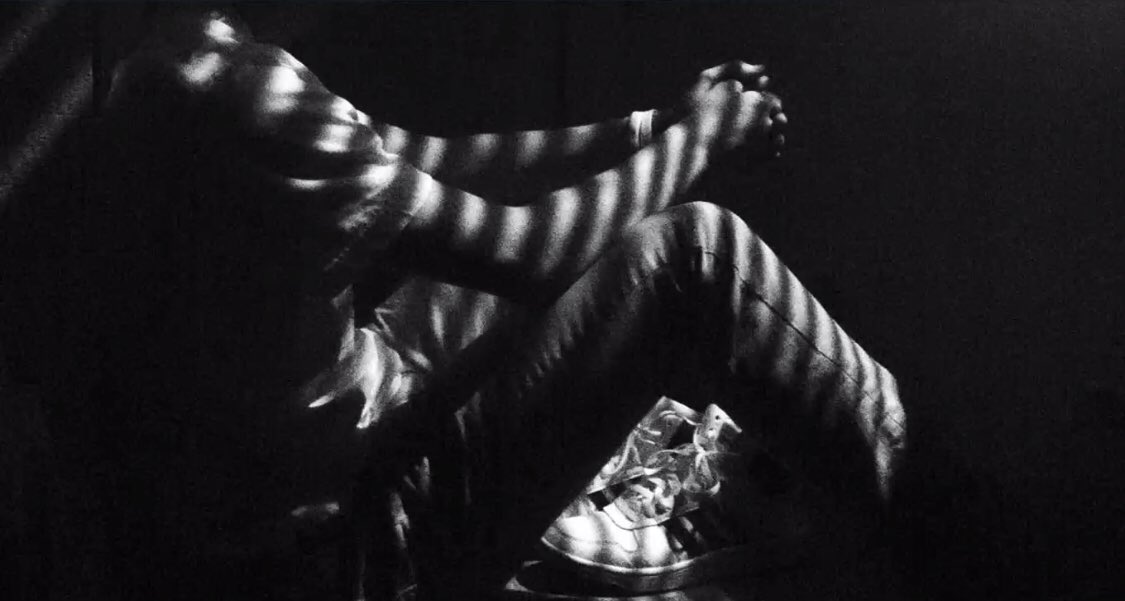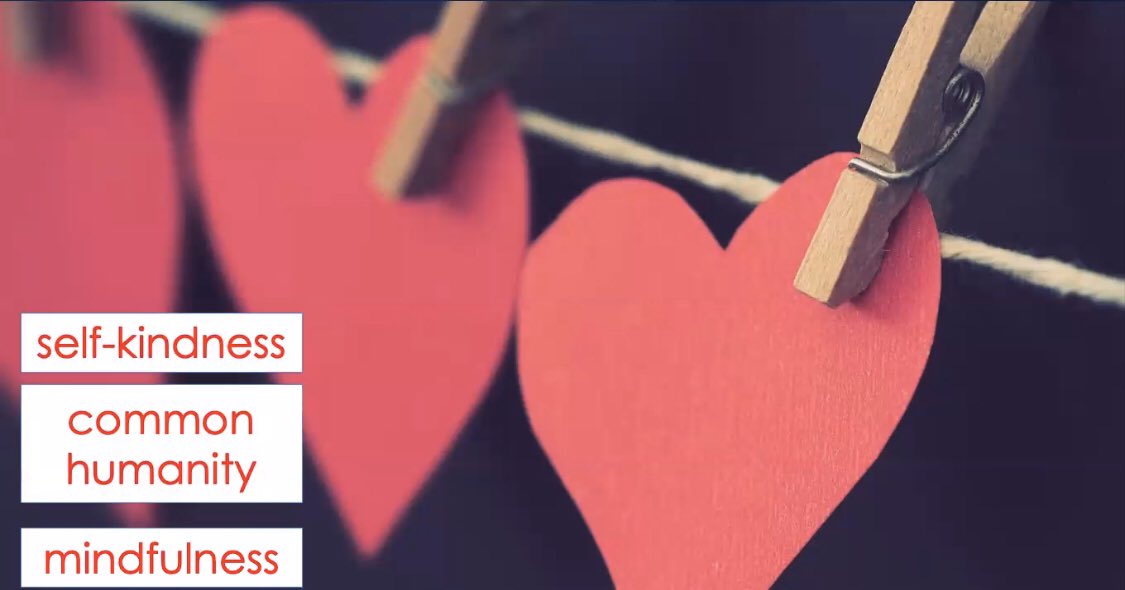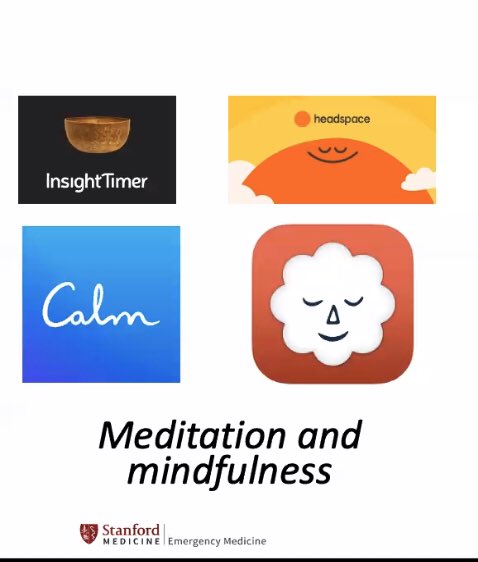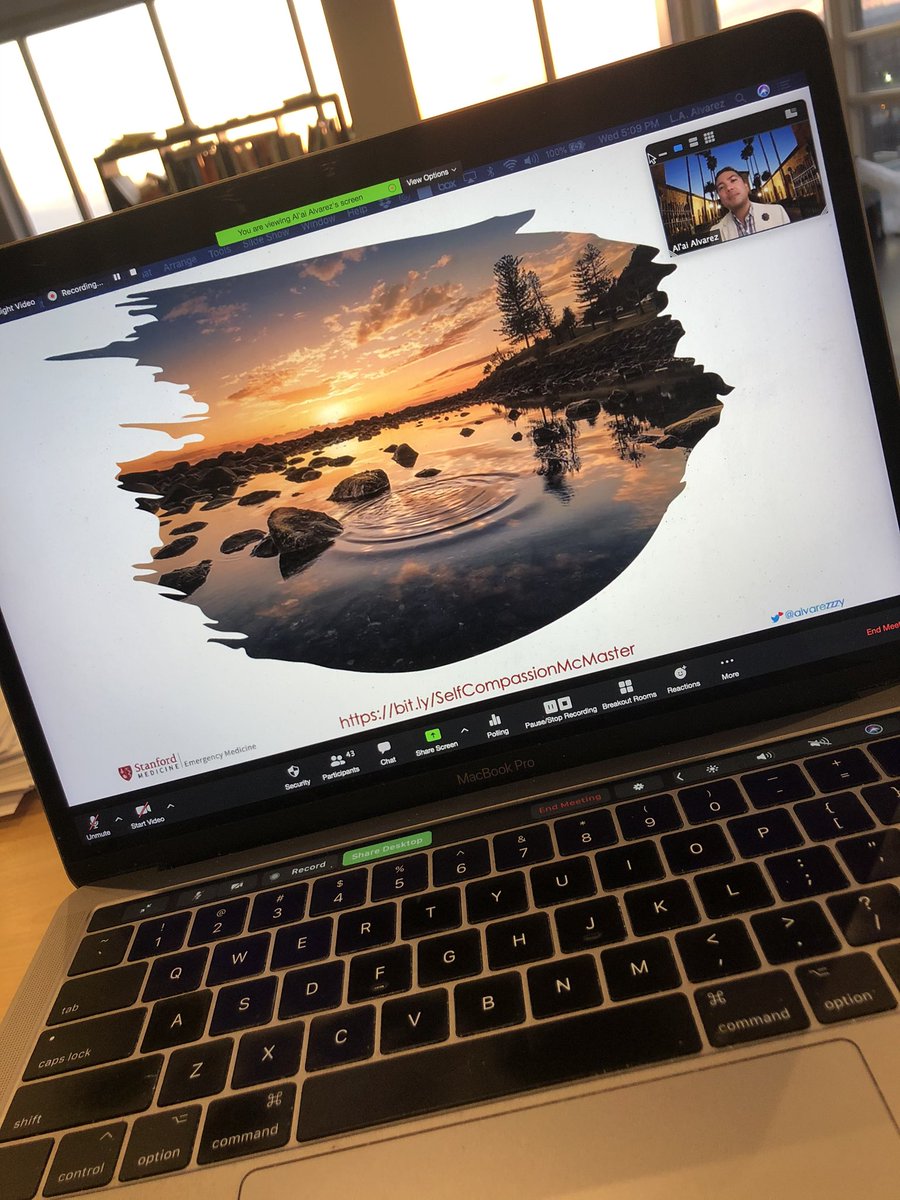It’s time! We are live! Thanks to @alvarezzzy for joining us to talk about overcoming self-judgement with self-compassion during the #COVID19 pandemic. This thread will summarize some of his points!
Yes I know folks... he just said the hockey players run on the ice court... and yes it’s called a hockey puck... but you know what he means!
Deep breathing and centering yourself can be a pro-move before you start an important performance or procedure.
Deep breathing and centering yourself can be a pro-move before you start an important performance or procedure.
It’s easy to blame yourself when things go wrong. It’s less drama than blaming others. Especially in clinical care. But this can lead to moral injury with ourselves...
Imposter syndrome can also be disabling for many - regardless of what type of work you do!
Acknowledging your perceptions can help you figure things out - makes you feel less alone if you talk about it!
Acknowledging your perceptions can help you figure things out - makes you feel less alone if you talk about it!
All of these negative experiences can be linked by shame. The list is endless for our #WorkLife.
How do we make time for our families?
For ourselves?
How do we make time for our families?
For ourselves?
Early course of the pandemic is wrought with anticipation... guilt... fear/anxiety... frustration... anger...
At the peak of the pandemic, many are overwhelmed, distressed... may lead to more conflict and more feelings of helplessness.
Concerns about PPE... worries about not being productive enough....
Concerns about PPE... worries about not being productive enough....
The aftermath of the pandemic, will include regret, shame, grief, sadness, PTSD, lack of desire to return to work.
Now we review autonomic nervous system and how we can overcome our unconscious reflexive responses.
If you feel hyperactive, slowing down your breathing (tactical breathing).
If tired, think about move about a bit to wake yourself up!
If you feel hyperactive, slowing down your breathing (tactical breathing).
If tired, think about move about a bit to wake yourself up!
Preventing burnout can be achieved by giving ourselves self-compassion.
A survey of Stanford docs showed that those who practice self-compassion are less likely to be burnt out.
A survey of Stanford docs showed that those who practice self-compassion are less likely to be burnt out.
Engaging in self-compassion can reveal things that you did not remember. Don’t sacrifice yourself. Compassion is something that we have access to... we can be intentional and access compassion within us.
Three gratitudes. An evidence-based technique. At 6-months the outcomes are similar to SSRIs!
3:1 ratio of positive to negative thoughts is optimal.
3:1 ratio of positive to negative thoughts is optimal.
Thanking others can help you feel less alone! It is hard to be negative when you’re being thankful!
The responsibility of resilience is only partly our own.
Some things we can do:
1. Look for positive things around us.
2. Vicarious kindness - notice the kindness of others.
3. Prospective gratitude (looking forward to future things)
Some things we can do:
1. Look for positive things around us.
2. Vicarious kindness - notice the kindness of others.
3. Prospective gratitude (looking forward to future things)

 Read on Twitter
Read on Twitter